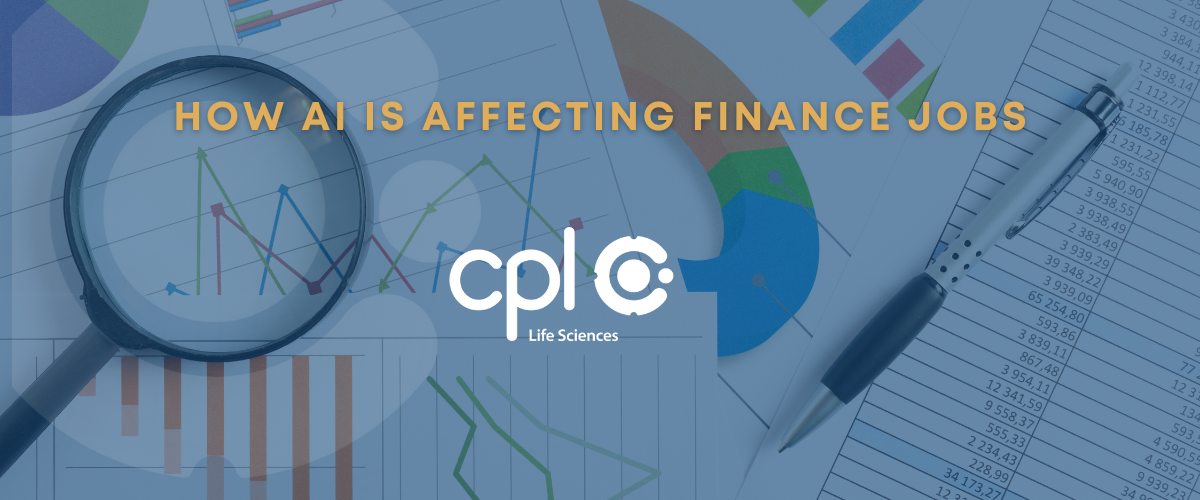How AI is Affecting Finance Jobs
Artificial Intelligence (AI) has rapidly evolved over the last few years, impacting industries worldwide. Among these, finance stands out as one of the most significantly affected sectors. From algorithmic trading to risk management and customer service, AI technologies are reshaping the roles of finance professionals and transforming the industry. In this article, we explore how AI is impacting finance jobs, the opportunities it creates and the challenges it presents.
1. Automation of Routine Tasks
One of the most immediate effects of AI in finance is the automation of routine and repetitive tasks. Processes like data entry, transaction processing, compliance checks are being automated by AI systems, which reduces human error and increases efficiency. This shift allows finance professionals to focus on more strategic and analytical tasks that require higher levels of expertise.
For example, AI-powered software can automatically process invoices, monitor transactions for fraud, or analyse credit risk based on patterns detected in large datasets. As a result, roles that were once manual and time-consuming, such as accounting assistants or clerks, are evolving or disappearing altogether.
2. Enhanced Decision Making and Risk Management
AI's ability to analyse vast amounts of data and identify trends is transforming decision-making processes in finance. Machine learning algorithms can process historical data, market trends and financial statements to provide insights into future market movements or investment opportunities. This allows finance professionals, from financial analysts to portfolio managers, to make data-driven decisions with higher accuracy.
AI is also revolutionising risk management. Traditional risk assessment models are often based on historical data and may not account for newer, dynamic risks. AI algorithms, however, can incorporate real-time data, such as market fluctuations or geopolitical events, to provide more accurate risk assessments. This is crucial for preventing financial losses and making informed investment choices.
3. Personalised Financial Services
The rise of AI has made personalised financial services more accessible to a wider range of consumers. Financial advisors and wealth managers are using AI-powered tools to create customised investment strategies for clients. These systems can analyse a client’s financial situation, preferences and risk tolerance to recommend tailored investment portfolios.
In addition, AI chatbots are becoming common in customer service roles within banks and financial institutions. These AI systems can assist customers with account inquiries, loan applications and other services 24/7. While chatbots are not yet capable of fully replacing human advisors, they enhance customer experiences by providing quick, on-demand responses to routine queries.
4. Job Displacement and Reskilling
While AI offers numerous benefits, it also leads to job displacement, especially for positions that are highly automated or require repetitive tasks. Roles such as data entry clerks, loan processors and even junior analysts may see a decline in demand. Many entry-level positions are particularly vulnerable to automation, as AI can perform these tasks more efficiently and accurately.
However, this shift does not necessarily mean the end of finance careers. Instead, it calls for a major reskilling effort. As AI takes over routine tasks, finance professionals need to focus on developing skills in areas such as AI interpretation, data analysis and strategic decision-making. This transition opens up new roles, such as AI specialists, data scientists, algorithmic trading experts, which require specialised knowledge and skills in both finance and technology.
5. Algorithmic Trading and Investment Strategies
AI has revolutionised the world of trading. Algorithmic trading, where AI systems make rapid trading decisions based on complex algorithms, has become the norm in many financial markets. These AI-driven systems can analyse market data, execute trades, adjust investment strategies faster than human traders, leading to higher profitability and reduced market inefficiencies.
This shift has significantly changed the role of traditional traders and analysts. While some traders may find their roles diminished, others are shifting toward more strategic positions that involve overseeing AI models, interpreting complex data and adjusting strategies based on changing market conditions. AI is not replacing traders entirely but is changing the nature of their work.
6. Financial Regulation and Compliance
Regulatory compliance is another area where AI is having a major impact. Financial institutions are required to comply with strict regulations and reporting requirements, often dealing with vast amounts of data. AI tools can automate compliance checks, monitor transactions for fraudulent activities and detect potential breaches in regulations.
This not only reduces the workload for compliance officers but also enhances the accuracy and timeliness of regulatory reporting. As the landscape of financial regulation continues to evolve, the demand for compliance experts who understand both finance and AI technology will rise.
7. Opportunities for Innovation
While AI is disrupting traditional finance roles, it is also creating exciting opportunities for innovation. Startups and fintech companies are harnessing AI to introduce new financial products and services that challenge conventional banking systems. For example, AI is being used to create new methods of credit scoring, alternative lending models and personalised wealth management services.
Finance professionals with a background in both finance and technology are well-positioned to thrive in this new era. Those who understand how to leverage AI tools and techniques will play a key role in driving innovation and shaping the future of finance.
Conclusion
AI is undeniably transforming the finance sector, bringing both challenges and opportunities. While certain jobs may be displaced by automation, new roles and skills are emerging that require a deeper understanding of technology and data analytics. Professionals who are proactive in adapting to these changes by acquiring new skills and embracing AI technologies will find themselves well-positioned in this evolving landscape.
As AI continues to play a larger role in finance, the industry will need to balance automation with human expertise, ensuring that technology complements rather than replaces the essential elements of decision-making, creativity and strategy in finance.
For the full report Click Here
